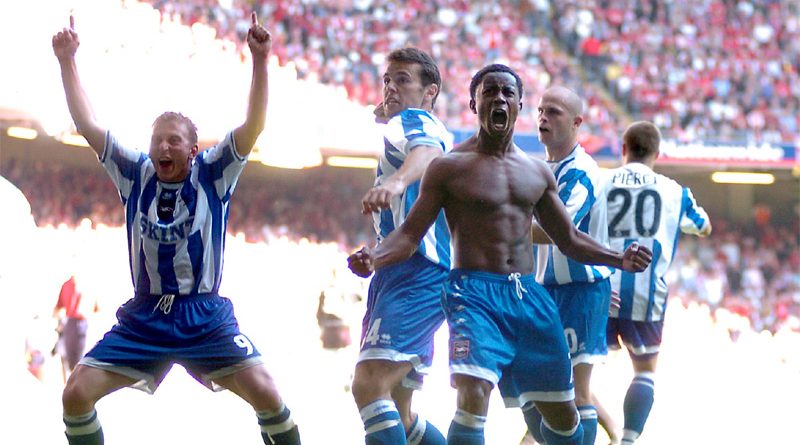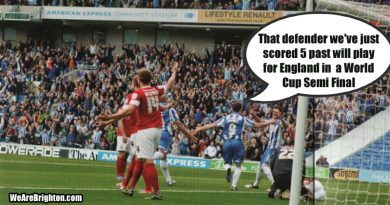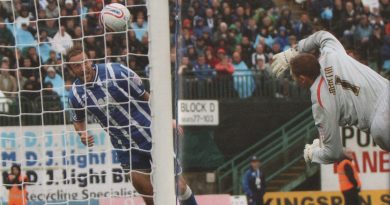What happened to Brighton’s Division Two play off final winners?
Five Brighton teams have had a stab at the play offs in the club’s history but only one has ever managed to win promotion through the end of season lottery.
Take a bow Mark McGhee and his 2003-04 season squad. After finishing fourth in the third tier, the Albion somehow squeaked past Swindon Town in the semi finals thanks to Adam Virgo’s last minute header in the Withdean rain and a nerve wracking penalty shoot out victory.
That set up a final date with Bristol City at the Millennium Stadium on Sunday 30th May. Over 30,000 Albion fans made the journey from Sussex to Cardiff to see if McGhee’s side could make an instant return to the second tier against a City side who had finished the higher of the two in the league.
After 84 tense, goalless minutes, Chris Iwelumo went down in the box following a clumsy challenge from Danny Coles. Leon Knight stepped up and delivered the coolest penalty you will ever see, beating Steve Phillips from 12 yards for his 27th and most important goal of the season. 1-0 was how it finished.
That afternoon in South Wales remains one of the greatest days and occasions that the Albion have ever played in. Here’s what happened to the 13 players who wrote themselves into the history books as the only Brighton side to win a play off final.
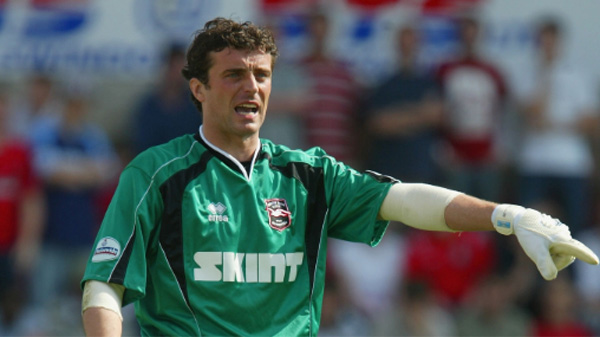
Ben Roberts
When people look back at the run to the play off final, they remember Virgo’s header and Knight’s penalty, but Ben Roberts had arguably the biggest role of the lot in securing promotion. He kept a club record six consecutive clean sheets going into the second leg of the semi final with Swindon, pulled off an astonishing penalty save from Tommy Mooney in the shoot out and then recorded another shut out in the final itself.
The goalkeeper had suffered with back problems throughout his career, which was in reality the only reason he was playing for the Albion and not at a much higher level. This actually turned out to be his final game in a Brighton shirt as nine months later he retired as a result of those troubles.
Roberts eventually wound up back at the Albion in the summer of 2015 as goalkeeping coach via a pretty unusual route. He spent a year backpacking around the world, graduated from the University of Roehampton with a first class honours degree before coaching at Yeovil Town and Charlton Athletic.
Clearly, Roberts is as talented a coach as he was a player. Whilst all of Chris Hughton’s coaching staff were sacked along with the former Albion boss, Roberts kept his job. His return to the club saw him transform David Stockdale from something of a calamity in the 2014-15 season to being one of the best goalkeepers in the Championship over the course of the next two seasons. It’s no coincidence that since Stockdale left Roberts’ tutelage to chase the pound signs at Birmingham City, his career has fallen off a cliff.
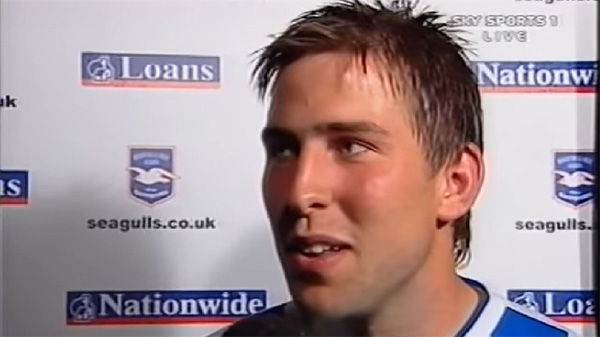
Adam Virgo
The hero of the semi final win over Swindon, Adam Virgo had only come into the side at right back around the turn of the year following a long-term injury to Paul Watson. Given that he was seen as something of a burly centre half, using him at right back seemed like an unusual decision initially from McGhee (stranger was of course to come) but it worked out surprisingly well as the youth team product became an important component in such a good back four.
The following season, McGhee seemingly had one too many pints of whiskey and decided to use Virgo as a centre forward. Remarkably, the positional change ended up being a roaring success and Virgo ended the 2004-05 season as Brighton’s top scorer with eight goals which earned him a £1.5m move to Celtic. He spent three seasons in Glasgow before returning to the Albion in the summer of 2008 under Micky Adams, who went even further than McGhee by deploying him as a right winger in one game away at Northampton Town.
Virgo moved onto Yeovil in the summer of 2010 when Gus Poyet deemed him surplus to requirements and finished his career at Bristol Rovers. He has since become a highly successful pundit and a man the WeAreBrighton.com team used to see with alarming frequency when drunk at Burgess Hill Station.
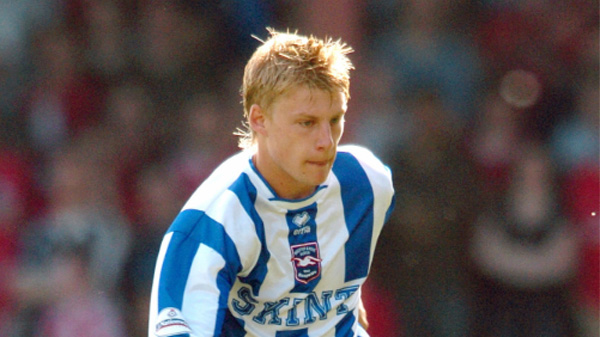
Dan Harding
Just like Virgo on the other side, Dan Harding had been thrown in at the deep end after an injury to regular left back Kerry Mayo and despite being only 19-years-old, he was so good that he didn’t relinquish the shirt for the next two seasons until a controversial move to The Leeds United in the summer of 2005.
He was already an England Under 21 international by that point, keeping Leighton Baines out of the Young Lions side. That attracted the attentions of those at Elland Road with Harding walking out on the Albion to join a club he claimed to have supported as a boy.
The Brighton faithful never forgave him for that and everytime he made a subsequent return to either Withdean or the Amex, he got a right good booing. After leaving Leeds, he joined Ipswich Town who he had also supported as a boy, Southend United who he had also supported as a boy, Reading who he had also supported as a boy, Southampton who he had also supported as a boy, Nottingham Forest who he had also supported as a boy, Millwall who he had also supported as a boy, Eastleigh who he had also supported as a boy and finally Whitehaek who he had also supported as a boy.
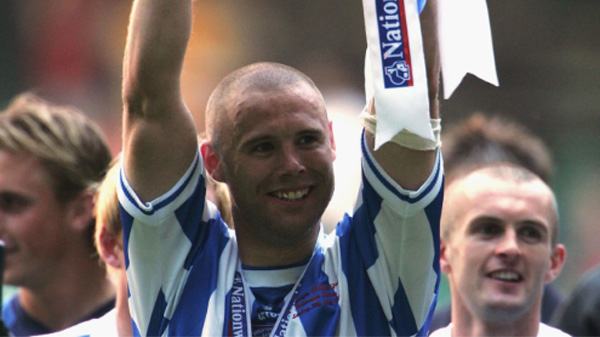
Danny Cullip
The definition of a no-nonsense defender, Danny Cullip was McGhee’s captain and it was his partnership with Guy Butters that formed the bedrock of the Albion’s success. No home match at Withdean during Cullip’s five years at the club would be complete without hearing him bellow one of his stock phrases such as “LET’S ‘AVE A WINNER” and “SECOND BALL” whenever the opposition keeper was taking a goal kick.
Dick Knight decided to cash in on Cullip’s talent six months after the play off final victory when he was sold to Sheffield United. He lasted just three months at Bramall Lane before clashing with Neil Warnock and went onto play for Watford, Nottingham Forest, Queens Park Rangers, Gillingham and Lewes.
Cullip had many great moments in a Brighton shirt, ranging from scoring the goal which secured the Division Three title against Chesterfield in 2001 to a collosal showing away at Nottingham Forest in 2004 in which he ended the game with blood pouring from his head.
The best though was undoubtedly when he screamed at Robbie Pethick “PETHICK YOU FUCKING UGLY BASTARD” so loud that the whole of Withdean could hear it. Pethick’s crime? Putting the ball out for a throw.
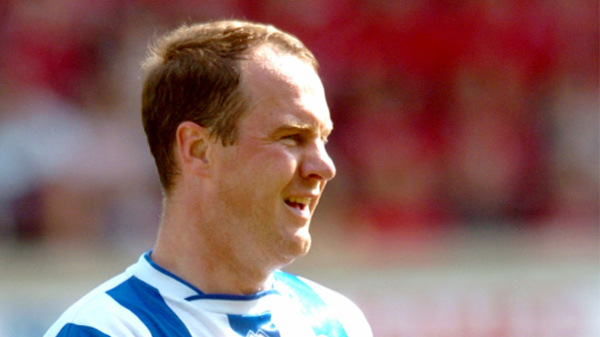
Guy Butters
If you’d have said in the summer of 2003 that one year later, Guy Butters would be one of the first names on McGhee’s team sheet for a play off final having been voted Player of the Season, you’d have been locked up. 12 months before this most famous of afternoons in Wales, Butters weighed about 25 stone and had been put up for sale on eBay by one particularly cheeky Brighton supporter.
It says much about the determination of the man that he battled back from that to become a mainstay of the Seagull’s promotion winning defence. He’d spend a further four seasons with the Albion, going onto captain the club and becoming an extremely popular man with it. Butters continues to be involved with the Albion to this day, working for Albion in the Community and undertaking various sponsored challenges to raise money for the charity.
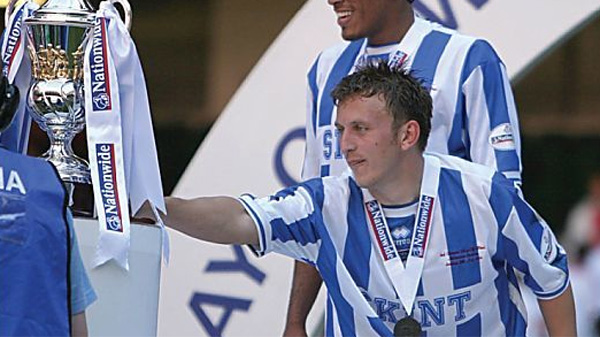
Gary Hart
The play off final win gave Gary Hart the third of his four promotions as a Brighton player, a record that is unlikely to ever be surpassed. The first came in 2001, the second in 2002 and the final one in 2011, after which he retired after 13 years with the club. Not bad for a bloke signed for £1,000 plus a set of kit in 1998.
Hart was an automatic pick on the right wing under McGhee this season but it was to be the last time he played with such regularity. His versatility saw him used as a right back and even a left back later in his career before he enjoyed something of an Indian summer towards the end of the 2008-09 season when his partnership with Lloyd Owusu proved pivotal in helping Russell Slade lead Brighton to a great escape from relegation.
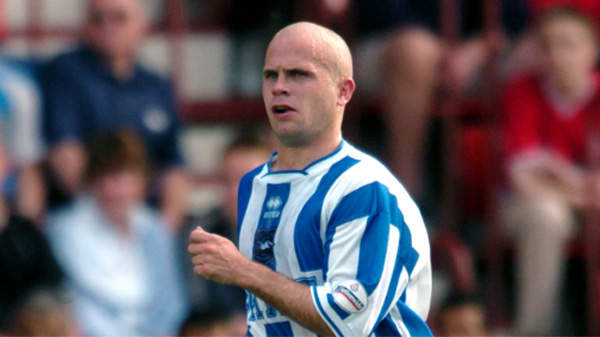
Charlie Oatway
This Brighton team were full of characters and they didn’t come any bigger than Charlie Oatway. The midfield enforcer, he was shorted than Napoleon but you wouldn’t want to mess with him as he could do some serious damage. In fact, his midfield partnership with Richard Carpenter must have been one of the most frightening in the Football League at this point in time.
Oatway played 248 times for the Albion over the course of just over six years before his career was ended by a broken ankle picked up playing against the club he supported, Queens Park Rangers on Boxing Day 2005. It was a severe blow both for player in terms of calling time on his career prematurely at the age of 32 and for Brighton, who ended up limping to relegation at the end of that season in a team clearly devoid of leaders without Oatway’s presence.
His Albion story wasn’t done however and he returned to the club as first team coach under Gus Poyet. Oatway and Poyet struck up the most unlikely of friendships, one being a Uruguayan central midfielder with all the flair and talent that you’d expect from a South American and the other a bloke from Shepherds Bush who’d done time for actual bodily harm and common assault following an incident outside a fish and chip shop in Essex. Oatway has subsequently followed Poyet to Sunderland, Shanghai Greenland Shenhua, AEK Athens and Real Betis.
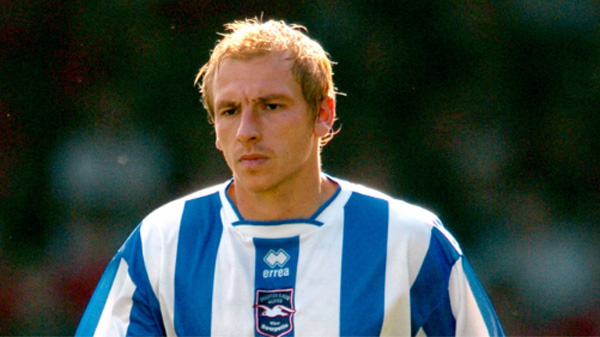
Richard Carpenter
Much like Roberts, Richard Carpenter’s contribution towards getting Brighton to the final is often forgotten when people look back at how the Albion made it to Cardiff. He was the man who scored the winner in the first leg of the semi final with Swindon, a trademark pile driver shot from the edge of the box which took a defelction on the way through to wrong foot Rhys Evans in the Robins goal.
Without that strike, promotion wouldn’t have been possible. Popping up with important goals was somewhat of a trademark of Carpenter’s six years with the club before his retirement in 2007, after which he began collecting antiques whilst living in a caravan on a travellers’ site in the Kent.
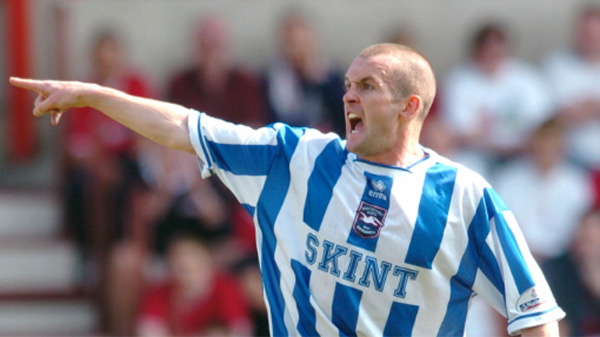
Nathan Jones
Nathan Jones is probably the player who needs the least introduction out of all the 2004 play off final team. Being the squad’s only Welshman, Jones was looking forward to the game more than most and he didn’t disapponint, giving a typically flambouyant yet solid showing out on the left wing in front of all his friends and family in Cardiff.
He’d go onto play for one more season with the Albion following victory at the Millennium Stadium, before moving to Yeovil Town. Since then, he’s coached at Charlton Athletic before Oscar Garcia brought him back to Brighton in the summer of 2013 as his assistant manager.
That was a decision not without controversy. Jones had fallen out of favour with the Seagulls support somewhat since leaving Withdean, having rather brilliantly decided to over elaborately celebrate every Yeovil victory over Brighton he was involved in right in front of the Albion fans.
As a result, Jones was often derided during his first 18 months as a coach at the Amex until he was put in temporary charge following Sami Hyypia’s departure, leading the Albion to a come-from-behind 2-2 draw with Reading and then an inspired 2-0 win at Fulham. His passion at the end of the game in going mad in front of the heaving Craven Cottage away end was one of the only positives of an otherwise dreadful 2014-15 campaign.
Jones clearly had an aptitude for management and it was Luton Town who took a gamble on him in 2016. That paid off as he led them to promotion from League Two and put in most of the groundwork for the Hatters’ League One title win last season, although he departed Kenilworth Road for the challenge of managing Stoke City at the turn of the year. Many Albion fans would like to see him take over at the Amex in the future.
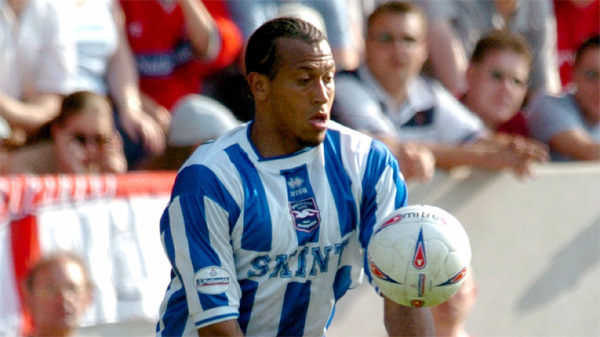
Chris Iwelumo
Both McGhee and his predecesor Steve Coppell spent much of the 2003-04 season searching for the right strike partner for Knight. They worked through Darius Henderson, Chris McPhee and Trevor Benjamin with varying degrees of success before Chris Iwelumo arrived on loan from Stoke City for the final two months of the season.
The target man made an immediate impression, scoring in his first two appearances on his way to a haul of four goals in 13 games. His most telling contribution however was to be the man who went down in the box to earn the winning penalty at the Millennium Stadium, writing himself into Brighton folklore despite the brevity of his Albion career.
McGhee was desperate to keep him after the final but the finances weren’t right and so Iwelumo moved to German side Alemannia Aachen where he played UEFA Cup football. He returned to England after a year and would go onto play for 11 more clubs in this country as well as becoming a full Scotland international.
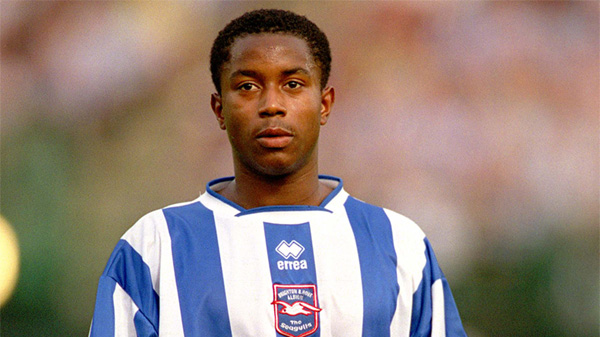
Leon Knight
Normally, a striker who fires a club to promotion is guaranteed hero status among that team’s supporters forevermore. Not Knight though. His 27 goals may have been the single most important contributing factor to Brighton’s success in 2003-04, but he’s remembered as much for his departure and the controversy that surrounded it as he is his goal scoring feats and that penalty which won the final with Bristol City.
When you watch that spot kick back, you see a man with ice in his veins. He’s 100% focussed on what he is doing, supremely confident and not phased by anything going on around him. If only Knight had have been like that off the pitch as well as when confronted with a promotion winning penalty in front of 70,000 people with six minutes remaining.
Maybe then he wouldn’t have frequently fallen out with McGhee, hastening his departure for Swansea in 2005. Maybe then he wouldn’t have said he hoped Brighton would get relegated within a few hours of signing on at the Liberty Stadium. Maybe then his career wouldn’t have nosedived, he wouldn’t have taken in seven clubs in four years and been banned from playing in Britian and Ireland. And he might not have become a parody of himself on Twitter.
He was a bloody good footballer, after all.
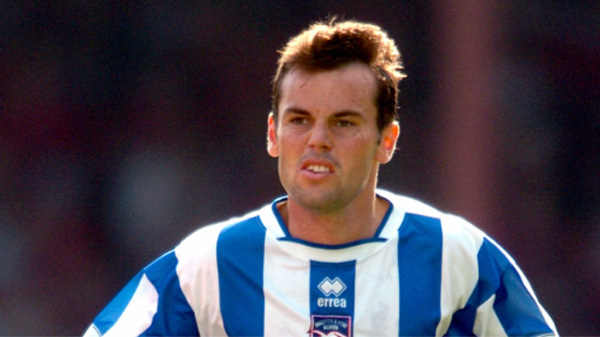
Paul Reid (Carpenter 62)
Australian Paul Reid had only arrived at the Amex a couple of months before the play off final from Bradford City, but it became pretty clear he offered an alternative to the methods deployed in central midfield by Oatway and Carpenter. That’s probably why McGhee tunred to Reid with half an hour remaining to try and unlock the Bristol City defence.
Despite his obvious gifts as a playmaker, Reid ended up playing the majority of his four seasons with the Albion as a full back. A serious knee injury pretty much ended his time in England and he left Withdean in the summer of 2008, returning home to rebuild his career back in Australia and going onto win two caps for the Socceroos in 2009.
Reid remains interested in goings on at the Albion and regularly appears as a guest at Seagulls Downunder meetings. He was even present a few days ago when the group’s logo was beamed onto the side of the Sydney Opera House in what looked on Twitter to be a pretty spectacular moment.
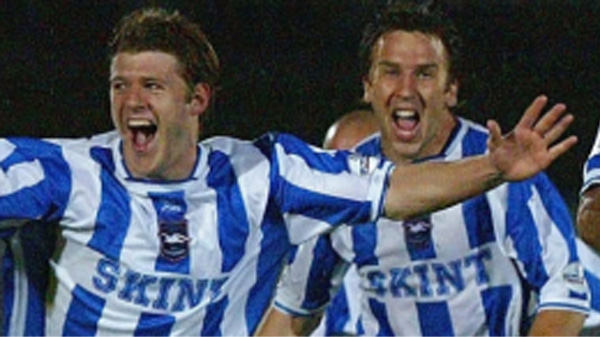
John Piercy (Jones 78)
Former Tottenham Hotspur reserve captain John Piercy spent two years with the Albion, but we never really got to see the best of him due to injuries and illness which ultimately forced his retirement from the game at the age of 25 – just six months after the play off final.
He was a versatile player who could play anywhere across the midfield or in attack. He made two telling contributions to the promotion season. The first was to score a brace when leading the line in Knight’s absence in a 4-0 win over Wycombe Wanderers on Boxing Day. The second was to notch in the semi final penalty shoot out against Swindon.
Piercy replaced Jones for the final 12 minutes at the Millennium Stadium and was on the scene when Iwelumo was felled in the box. Following his decision to hang up his boots, he went onto play in the County League for Eastbourne Town before becoming a teacher.

